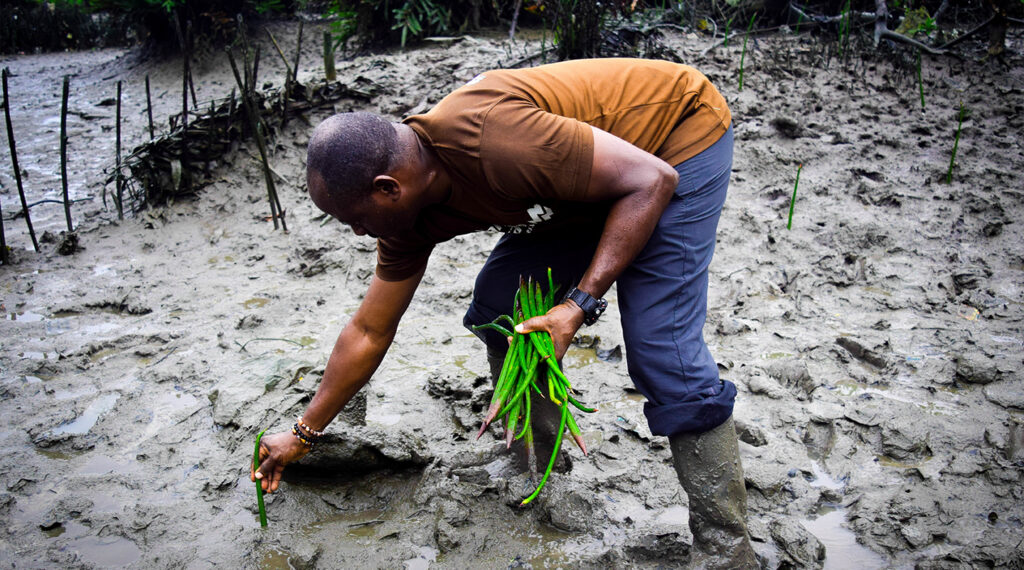It’s COP o’clock

This year all roads lead to Sharm El-Sheikh, Egypt for the 27th United Nations Framework Convention for Climate Change (UNFCCC) Conference of Parties (COP27). It’s full steam ahead to ensure that this COP delivers better outcomes to tackle climate change than the Glasgow Climate Pact.
COP27 has been slapped with many labels already, indicating the high expectations pegged to it. It has been described as the “African COP”, the “Action COP”, the “Adaptation COP”, and most recently by the new Executive Secretary of UN Climate Change, Simon Stiell as “the world’s first opportunity in the era of implementation of the Paris Agreement to demonstrate progress”.
Despite the cynicisms of how COPs never translate commitments into action, COP27 ‒ like all the other COPs ‒ still directs global public, private, political, and corporate attention to climate change issues and responses. It commands an audience from diverse stakeholders who play pertinent roles, and who need to set aside individual interests to embrace a whole community approach. This approach enables the world to address the scale of climate change in all its dimensions.
Philanthropy is a critical stakeholder in this regard, and given its resources, flexibility and agility has the potential to confront the persisting disconnect between commitments and implementation. The philanthropy fraternity among many other stakeholders plays a pivotal role as catalysts and funders of change and development within society.
Philanthropies hold a unique position to attract financial investments and support Africa’s emerging economic opportunities. This helps achieve meaningful impact in climate action across all levels. The increase in global philanthropy is a boon in the fight against climate change, but more is needed.
The African Climate Foundation (ACF) believes that a successful COP27 for Africa must locate and align COP ambitions and issues within the broader climate change and development nexus. Most importantly, it must draw on African voices, expertise, and knowledge to inform key climate policy debates and promote growth and prosperity on the African continent. Under the banner of #TheCOPWeNeed we are demonstrating the importance of climate ambition and action both inside and outside the Paris Process.
In the past few months in the run up to the conference, ACF has committed resources to drawing together African experts from across the spectrum to talk about #TheCOPWeNeed and the climate response Africa deserves.
Despite growth within the philanthropy landscape, some would say it is not as fast and adaptive as one would hope for. McKinsey wrote in October last year in its insights report, Its time for philanthropy to step up the fight against climate, that “even accounting for these new commitments, philanthropic funding of climate-change solutions remains meagre compared with the scale of the problem and the speed with which the world must act.”
Sadly, global philanthropy continues to be largely fragmented and skewed in focus areas and geographical reach. There is very little focus on Africa and giving related to the climate crisis. Based on data collected between 2015 and 2020 by Climate Works Foundation and other organisations, the report estimates that out of approximately $750 billion in total philanthropic donations, only between $6 billion and $10 billion was dedicated to climate change and more specifically on mitigation. Of this, only $55 million was disbursed in Africa.
As a diverse continent with complex developmental and climate-related challenges, Africa is one the most vulnerable regions in the world to climate change. But the figures are clear that Africa currently receives less than 3% of climate mitigation donations. Even worse, only a fraction of this amount is being disbursed by African grantmakers on the continent.
ACF has identified three recommendations for consideration by the philanthropic community, and particularly for non-African and non-climate philanthropy actors, that would be instrumental in building up a successful and healthy philanthropic ecosystem and in supporting the delivery of the COP Africa needs.
First, speak to African experts to understand the context and needs of the continent. There is a need to broadly consult, trust and incorporate African perspectives to counterbalance the predominantly western narratives and perspectives that often dominate the climate discourse. There must be a deliberate effort to draw on African voices to profile and shape the continent’s own future climate resilient development pathway. This local knowledge and expertise not only informs planning but offers contextual understanding which enables impactful and ambitious giving.
Second, it is critical that global philanthropies work with those working in the space to maximise the impacts of funds. There must be concerted efforts to work with re-granters like the ACF and local philanthropy networks who act as important intermediaries, connecting large funders to policymakers, grass-roots organisations, and campaigners who are working on the ground to advance practical and sustainable solutions.
Strategic re‐granters employ skilled people on the ground, with local knowledge and expertise which form part of, and support, a collaborative network that can go to scale quickly and effectively, enabling agility and contextual understanding which also enable impactful and ambitious giving.
Last, there is a need to shift from the traditional way of giving and embrace a more out of the box framework, for example giving in investments. This leaves room for harnessing the inherent opportunities within the continent to attract new kinds of investments and boost Africa’s infrastructure, finance, and knowledge capability. This also helps shift the narrative of climate transition from one focusing on Africa as a risk to a constructive narrative on opportunities.
Authors

